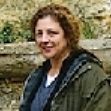The opening speeches of the seminar organised in association with the Pazartesi [Monday] magazine in Turkey were made by Amazone chair Monique Chalude, Belgian Foreign Minister Laurette Onkelinkx' s advisor Simone Suskind and woman activist, author Sirin Tekeli.
Bogazici [Bosphorus] University Sociology Department's Prof. Dr. Nukhet Sirman made a speech on "Women bred by violence" at the seminar while Pazartesi magazine editor and journalist Ayse Duzkan spoke on "Strategies, Policies and Feminist Perspective".
Bargach: Women do not have political willpower
Moroccan Women Information and Observation Center (CIOFEM) chair Jamila Bargach covered the issue of "contributions of the Moroccon civilian society movement and the democratic platform of women to equality" in the seminar where representatives of women associations of Morocco, Iran and Belgium were present.
Bargach explained that women lacked political willpower in Morocco and said "nothing other than the economic integration of women is being discussed".
Noting that the enforcement of Islamic Sharia Laws in Morocco referred to religion and contemporary international practiced, Bargach said that " in line with requests made by the Democratic Platform of Women (la Ligue Democratique des Femmes -LDDF) international conventions were accepted as a reference. The DDF's use of religion for this was a strategy".
Bargach defended that the Ko'ran contained the spirit of equality but emphasised the importance of dialogue between women in enforcing equality in daily life.
"Man does not work for woman. Woman works for man. We started off on this concept and said we should create equality. The problem is not the law. What is important is to change the mentality, the way of thinking. The conservatism of judges is an obstacle in front of the functioning of family courts".
El Hajjami: "Equality Spring" campaign leads to changes
Marrakech Faculty of Law and Women and Family Research Centre head Aicha El Hajjami said, meanwhile, that the campaign dubbed "Equality Spring" launched before the death of the King in Morocco had led to substantial changes in the country's Sharia laws.
El Hajjami said there were improvements in the political and judicial status of women in Morocco and argued that the inequality women were subject to there was not the result of Islamic relision.
"The problem was in the continuation of the patriarchal thought" she said. "It was in the oppressing pressure of the men in Mediterranean countries".
Family law is a modern interpretation of Islam
Explaining that in 2004 the reforms in the action plan were approved unanimously, El Hajjami said "the family law in Morocco is based on equality and is a modern interpretation of Islam. Since 1992, Morocco has had respect in international human rights."
El Hajjami noted that 35 seats of the Morocco Assembly were held by women and said five women had been elected to their seats. She explained that the ratio of women in Parliament had increased from 0.66% to 10.07%.
Saying that in order to improve on women's participation in politics a quota needed to be enforced in areas where women were likely to be elected, El Hajjami continued, "inequality should be fought. If for once it is accepted that there is inequality in laws, the parliament will be dissolved. An example to this was experienced in Egypt".
Tahmasebi: 62% of Iranian women at universities
Iranian Civilian Society Organisations (CSO) Training and Research Centre (ICTRC) member Sussan Tahmasebi read a statement under the title of "Female CSOs: Priorities of Women Politics" where she said the situation of women in the country had improved after the revolution.
"62 percent of women in Iran go to universities. 49 percent work in civilian society organisations. Before the revolution the CSO's made a leap. Today there are over 60 CSO's in Iran working on women issues".
Tahmasebi explained that there were two types of CSO organisations in Iran and added that there was a difference between the working methods, styles and outlooks between religious/traditional organisations and contemporary ones.
She said "Traditional organisations concentrate more on issues of education, health, social assistance. Their income sources are primarily donations. People support them due to social and cultural reasons. The criticism directed at these CSO's is their expanding of the culture of dependence. They reinforce the traditional role of women."
Tahmasebi said contemporary CSO's worked primarily to prevent problems that women face.
"They conduct theoretical work. Their main issues is for women to receive training and education and the problems of economic development. They address the most sensitive issues. In the recent years both their missions and visions have further developed. Journalists and academics have joined their ranks. They are trying to raise the voice of the agenda of women." (AD/II/YE)




